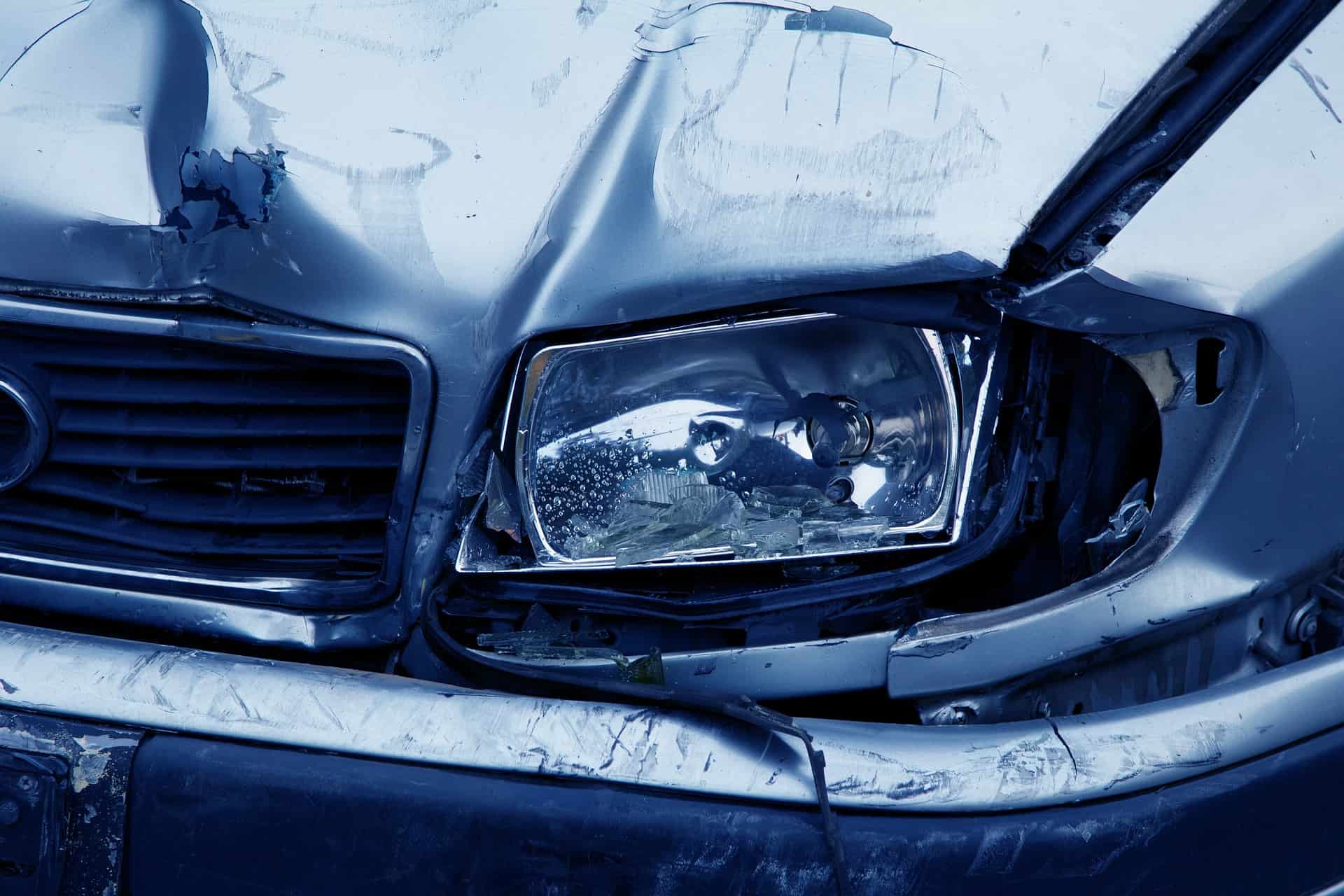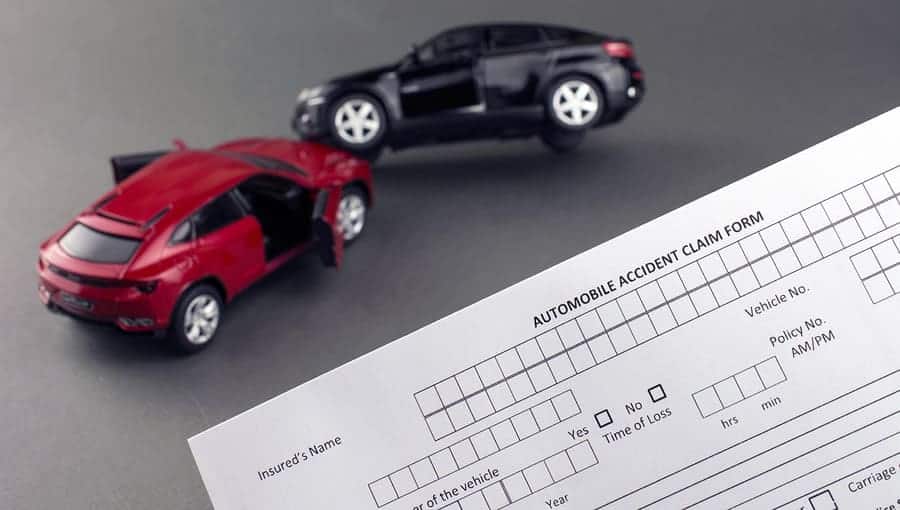You were injured in a car accident. Are your medical bills covered by auto insurance? If so, what do you need to do in order to secure coverage? Here’s what you need to know.
Coverage for medical bills is one of the most-important aspects of auto insurance. Unfortunately, it is also one of the most confusing. When it comes to answering the question, “Does car insurance cover medical bills?”, the answer is generally, “Yes.” However the coverage that is available depends on the specific policy (or policies) that apply; and, depending on where you live, whether you can seek full coverage could depend on both the cause of the accident and the extent of your injuries.
Does Auto Insurance Cover Medical Bills from Car Accidents?
When dealing with the aftermath of a car accident, one of the most-important things you need to know is that “auto insurance” is a general term that actually describes various different types of insurance coverage. For example, collision and comprehensive coverage are both types of auto insurance that cover property damage under different circumstances.
With regard to medical bills, it gets even more complicated, because there are four primary types of auto insurance—two of which provide coverage on a “no fault” basis, and two of which require proof of liability in order to obtain coverage.
No-Fault vs. Fault-Based Car Insurance Coverage for Medical Bills
If you have no-fault coverage under your car insurance policy, then this coverage should take care of your medical bills—or at least a portion of them—regardless of what caused your car accident. There are two main types of no-fault car insurance: (i) personal injury protection (PIP), and (ii) medical payments coverage (MedPay).
As we discuss below, if you were seriously injured in your car accident, your PIP or MedPay coverage (if you have it) will only cover a portion of your medical expenses. As a result, it will be important to hire a car accident lawyer to determine if you have grounds to pursue a fault-based claim as well. If you have a fault-based claim against another driver, you will file under his or her bodily injury liability (BIL) auto insurance policy. If you need to seek coverage under your own auto insurance, then you will be filing an uninsured/underinsured motorist (UIM) claim.

- How Much Is Your Car Accident Settlement Worth?
Find out the maximum compensation you could receive.
- How Much Is My Car Accident Settlement Worth?
PIP and MedPay: No-Fault Insurance for Medical Bills from Car Accidents
We’ll discuss no-fault car insurance coverage for medical bills first. While PIP and MedPay are similar, there are some important differences, so we will address each of these types of insurance separately.
Understanding How “No Fault” Auto Insurance Works for Medical Bills from Car Accidents
PIP and MedPay provide insurance coverage for medical bills from car accidents (and lost wages, for PIP) regardless of fault. This means that you can – and generally should – file a PIP or MedPay claim even if you believe that you may have been fully or partially at fault in the accident.
Once you pay your deductible, your PIP or MedPay policy will cover your accident-related medical bills up to your policy limit. However, once you reach your policy limit, your auto insurance company is not required to provide any additional coverage. If your medical bills from your car accident exceed your PIP or MedPay policy limit (as will often be the case), you will need to work with a lawyer to determine if you are eligible for additional fault-based compensation.
How Does Personal Injury Protection (PIP) Work for Car Accident Settlements?
Personal injury protection provides coverage for medical expenses and lost wages resulting from car accident injuries. It is insurance that you buy to cover yourself and the members of your household in the event of an accident. About a quarter of U.S. states require PIP coverage, and it is optional in others.
PIP policies generally provide $10,000 in coverage (though you can purchase more), and there is a deductible that is determined based on your premiums. Since it covers both medical expenses and lost wages, you will find that your PIP coverage is quickly exhausted if you suffered serious injuries in your collision. Securing payment under your PIP policy should be fairly easy; however, some insurance companies make it more difficult than it needs to be, and you will want to be careful to make sure that you do not share any more medical information with your auto insurance company than is absolutely necessary.
How Does Medical Payments (MedPay) Coverage Work for Car Accident Claims?
As its name suggest, medical payments coverage is car insurance that covers medical bills only (unlike PIP). However, filing a claim is similar; and, here too, it should not be difficult to obtain the coverage to which you are entitled under your policy. If you have any issues with securing MedPay coverage, you should consult with a local car accident lawyer promptly, as this will help ensure that you can move on from your insurance claim as quickly as possible.
Your lawyer will also be able to determine if you are entitled to additional fault-based compensation. This will be important if you were seriously injured, because MedPay policy limits (which can be as low as $1,000 or $2,000) can go quickly if you need more than basic medical treatment. If you have a liability-based car insurance claim, then you will be able to collect far more than you can collect through MedPay alone.
Does Your Auto Insurance Policy Include PIP or MedPay Coverage?
In order to determine if you have PIP or MedPay coverage, you will need to review your auto insurance policy’s “declarations page.” If you can access your policy online or through your insurance company’s app, you should also be able to find your coverage limits and deductibles once you log in. If you cannot figure out whether you have PIP or MedPay coverage, a local car accident lawyer will be able to assist you.
States Where PIP or MedPay is Required By Law
As noted above, some states require PIP or MedPay coverage under their mandatory auto insurance laws, while others do not. All of the states listed below require PIP as of 2020, except Maine and New Hampshire, which require MedPay (as noted):
- Delaware
- Florida
- Hawaii
- Kansas
- Kentucky
- Maine (MedPay)
- Massachusetts
- Michigan
- Minnesota
- New Hampshire (MedPay)
- New Jersey
- New York
- North Dakota
- Oregon
- Pennsylvania
- Utah
Even if your state’s auto insurance laws do not require PIP or MedPay, it is possible that you could still have one of these coverage options under your policy. PIP and MedPay are optional in many states, and insurance agents will typically try to sell customers on PIP and MedPay coverage. As a result, even if your state is not listed above, you should still review your declarations page (or ask a lawyer to review it for you) to determine whether you are entitled to “no fault” car insurance coverage for the medical bills from your accident.
Liability Insurance Coverage for Medical Bills from Car Accidents
If your PIP or MedPay coverage isn’t enough to cover your medical bills (or if you don’t have PIP or MedPay coverage), then you will need to consult with an attorney about seeking fault-based insurance coverage. There are two main types of fault-based coverage that pay for medical bills from car accidents:
- Bodily injury liability (BIL) insurance
- Uninsured/underinsured motorist (UIM) insurance
Bodily Injury Liability (BIL) Insurance: When the Other Driver’s Auto Insurance Covers Your Medical Bills (and Other Losses)
Bodily injury liability insurance covers other drivers and passengers when the insured driver is at fault in a collision. This is the type of auto insurance that typically comes to mind when people think about filing an auto insurance claim after an accident.
When Does BIL Insurance Cover Medical Bills?
In order to file a successful BIL claim, you will need to be able to prove that the at-fault driver was at fault in the accident. This could be any form of fault—from speeding or tailgating to being drunk or distracted behind the wheel. The key is that you need to be able to prove fault in order to secure liability-based insurance coverage. As a result, it is extremely important that you hire an experienced car accident lawyer to represent you.
How Much Coverage Does BIL Insurance Provide?
The amount that you can recover for your medical bills with a BIL claim depends on two factors: (i) the at-fault driver’s BIL policy limit, and (ii) your total accident-related losses. If the driver’s policy limit is not particularly high, then this may be the maximum amount you can recover—even if your losses are greater.
While BIL insurance covers all types of accident-related losses (including pain and suffering), it places all of these losses into a single “bucket.” So, if your total losses exceed the at-fault driver’s policy limit, then this means that the amount you can recover will be limited. In this respect, it doesn’t really matter what types of losses you have endured. If the other driver only has $30,000 in coverage, then you can only recover $30,000 regardless of how you apply this to your medical bills, lost income, pain and suffering, and other losses.
However, in some cases it is possible to obtain compensation above and beyond an at-fault driver’s BIL policy limit, and you will want to discuss your options with an attorney.

- How Much Is Your Car Accident Settlement Worth?
Find out the maximum compensation you could receive.
- How Much Is My Car Accident Settlement Worth?
Uninsured/Underinsured Motorist (UIM) Insurance: When Your Car Insurance Policy Provides Fault-Based Coverage for Medical Bills (and Other Losses)
Do you have uninsured/underinsured motorist coverage under your auto insurance policy? If so, then this could provide another way to pay your accident-related medical bills, and the amount of coverage available to you could be significantly higher.
When Does UIM Insurance Apply?
Uninsured/underinsured motorist insurance is insurance you buy to protect yourself (and the members of your household) in the event of a serious accident involving a driver who either (j) does not have auto insurance, or (ii) does not have enough auto insurance to cover your medical expenses and other losses. It works the same way as BIL insurance—meaning that you need to prove fault—but it is coverage that you can buy yourself to make sure that you are protected.
How Much Coverage Does UIM Coverage Provide?
If you (or a member of your household) has purchased UIM insurance, then the amount you can recover will depend on your policy limit—but see our discussion of “stacking,” below. In many cases, people will buy a significant amount of UIM coverage to protect against the very risk of suffering serious injuries in an accident involving an at-fault driver who is uninsured or underinsured.
While UIM insurance is mandatory in some states, in most states it is optional coverage. Mandatory policy limits are usually in the range of $25,000 to $50,000 per person per accident.
IMPORTANT: “Stacking” UIM Insurance Can Increase Your Coverage
In many states, the law allows for “stacking” UIM coverage. Basically, how this works is that if you are involved in an accident caused by an uninsured or underinsured driver, you can add up the UIM policy limits for all of the insured vehicles in your household. For example, if your household has three vehicles, all of which have $50,000 in UIM coverage, then you could potentially file a claim for up to $150,000.
What Medical Bills Does (and Doesn’t) Car Insurance Cover?
If you have been injured in a car accident, knowing what losses you can recover is an important aspect of knowing how to file a car insurance claim. When it comes to medical bills, all types of expenses should be covered. The issue is not what types of medical expenses you incur, but rather how much coverage is available.
With this in mind, the types of medical expenses that are generally covered by PIP, MedPay, BIL, and UIM insurance (up to the specified policy limits) include:
- Ambulance transportation and emergency treatment services
- Emergency room diagnosis and treatment
- Costs for x-rays, MRIs, CT scans, blood tests, and other types of medical tests
- Physician costs (including specialists) and nursing costs
- Hospital inpatient treatment expenses
- The costs of surgery
- Medical device (i.e. crutches or a wheelchair) and prescription costs
- Therapy, rehabilitation, and other recovery costs
Medical expenses that car insurance generally does not cover include:
- Medical expenses that are unrelated to your car accident (i.e. costs related to treatment of a pre-existing condition); and,
- Medical expenses incurred as a result of failing to follow your doctor’s advice (i.e. if your injury gets worse because you resume physical activity too soon).
Unfortunately, in many cases auto insurance companies will deny coverage for medical expenses even though they are clearly eligible for reimbursement under the terms of the driver’s policy. For example, it is fairly common for insurance companies to try to deny coverage by claiming that treatment relates to a pre-existing condition, when it in fact does not. If you run into this issue, it will be important for you to speak with an attorney to ensure that you are able to secure the full coverage you deserve.
5 Tips for Getting Your Medical Bills Covered By Insurance After a Car Accident
Tip #1: See a Doctor As Soon as Possible
In terms of what to do after a car accident in order to make sure your medical bills will be covered, the most important thing you can do is see a doctor as soon as possible. If you did not ride to the hospital in an ambulance and you have not yet sought treatment for your injuries, you should do so right away.
Tip #2: Follow Your Doctor’s Medical Advice (or Seek a Second Opinion)
Once you see a doctor and receive a medical diagnosis, you need to follow your doctor’s treatment recommendations (or seek a second opinion if you feel that one is necessary). If you do not, the auto insurance companies could try to deny coverage for your medical bills based on the fact that you are to blame for worsening your own injuries.
Tip #3: File a Claim with Your Auto Insurance Company Promptly
After a car accident, important to file your insurance claim promptly. Even though the deadline for filing for a car accident settlement might be a long way off, it will be in your best interests to get started on your claim as soon as possible.
Tip #4: Keep the Medical Records and Medical Bills from Your Car Accident in a File
When dealing with the insurance companies (or when you hire a car accident lawyer to deal with the insurance companies for you), it can be helpful to have all of your medical records and medical bills in one place. Start a file, and make it a habit to put new records and bills in your file as soon as you bring them home.
Tip #5: Hire a Car Accident Lawyer to Help You Secure Coverage
If you are like many people, you find dealing with auto insurance both frustrating and confusing, and what you really want is for someone with experience to help with your car accident claim. An experienced car accident lawyer will be able to help you secure the maximum insurance coverage available, and you can hire an experienced local lawyer at no out-of-pocket cost.

- Speak to a Car Accident Attorney
- Fast, Free & Confidential!
7 Mistakes to Avoid When Seeking Auto Insurance Coverage for Your Medical Expenses After a Car Accident
In addition to taking the necessary steps when dealing with your insurance company, you need to avoid certain mistakes as well. If you make these mistakes, you could end up with less than you deserve—and you could even end up without any compensation at all.
So, what mistakes do you need to avoid? Here are seven common mistakes that can cause problems for your insurance claim:
Mistake #1: Giving a Recorded Statement
When you file your insurance claim, your adjuster will ask you to give a statement. This statement will be recorded. You should not give a recorded statement to your insurance company. If you do, it will only be used against you. There is no benefit to providing a recorded statement, you do not have to provide a recorded statement, and therefore you should not do so.
What is a “recorded statement”? When you file your claim, your adjuster will ask you to say what you think happened in the accident. He or she may also ask questions like, “How fast were you going?”, “What were you doing at the time of the crash?”, and “Who do you think was at fault?” These questions are designed to do one thing—to get you to suggest that you could (and should) have avoided the collision. If you admit to this, you could have a very hard time recovering from this mistake, as your insurance company will be able to use your own words to refute anything you say differently in the future.
Mistake #2: Making Assumptions
In this same vein, you need to avoid making assumptions. This applies when talking to your adjuster, but it applies to other aspects of your claim as well. For example, you should not assume that:
- You were fully or partially at fault in your car accident;
- There was something you should have done to avoid the collision or mitigate your injuries;
- Your insurance company will treat you fairly;
- You will not be able to secure insurance coverage for your injuries; or,
- There is nothing a lawyer can do to help you.
Mistake #3: Making False Statements
In addition to avoiding assumptions, you also need to avoid making false statements. Making false statements is among the most-common reasons for legitimate auto insurance claim denials. If you say something that isn’t true, there is a very good chance that your insurance company will find out; and, if it does, it will almost certainly deny your claim on the basis of “insurance fraud.”
Mistake #4: Posting about Your Accident or Post-Accident Activities Online
When you file an auto insurance claim, your insurance company won’t just investigate the accident—it will investigate you as well. This includes monitoring what you post online.
If you post photos or comments that contradict what you told your insurance adjuster, this could lead to a claim denial. Likewise, if you post pictures of yourself going out, exercising or engaging in other physical activity when you are supposed to be resting and recovering, your insurance company may use your posts to blame you for your own medical treatment needs.
Mistake #5: Going to an Independent Medical Examination (IME) without Seeking Legal Advice
At some point, you might have to submit to an Independent Medical Examination (IME). This is basically an appointment with a doctor who works with your insurance company—and whose job is to help the insurance company determine how much it should pay for your injuries.
Before attending an IME, it is extremely important that you consult with an attorney. Your attorney may be able to save you from having to attend; and, if this is not an option, you will need your attorney to review the IME report and address any statements that present issues for your insurance claim.
Mistake #6: Accepting Your Insurance Company’s Determination of Liability
An important fact you need to keep in mind about how car accident claims work is that the insurance companies always have their own financial interests in mind. As a result, you should almost never take what your insurance adjuster says at face value. This is particularly true with regard to your insurance company’s determination of liability.
Mistake #7: Trying to Handle Your Car Insurance Claim on Your Own
Trying to handle your car insurance claim on your own is a mistake that can potentially impact the rest of your life. If you have been seriously injured, if your insurance company denies full coverage, and if you cannot afford your medical treatment as a result, your life could truly never be the same.
With this in mind, if you have a car accident insurance claim, you have no reason not to get help from an experienced car accident lawyer. Hiring a lawyer costs nothing out of pocket; and, even when you factor in your lawyer’s legal fees, you can still expect to recover far more with an experienced attorney on your side.
IMPORTANT: Your Medical Expenses Could Be Just a Small Fraction of the Total Amount You are Entitled to Recover
While this page has focused on how and when car insurance covers medical bills, it is important not to forget that your medical bills could be just a small fraction of the total amount you are entitled to recover. If someone else was at fault in your car accident, you can seek to recover all of your accident-related losses—including your lost income and pain and suffering.

- What’s my car accident settlement worth?
- Find out in less than 60 Seconds!

